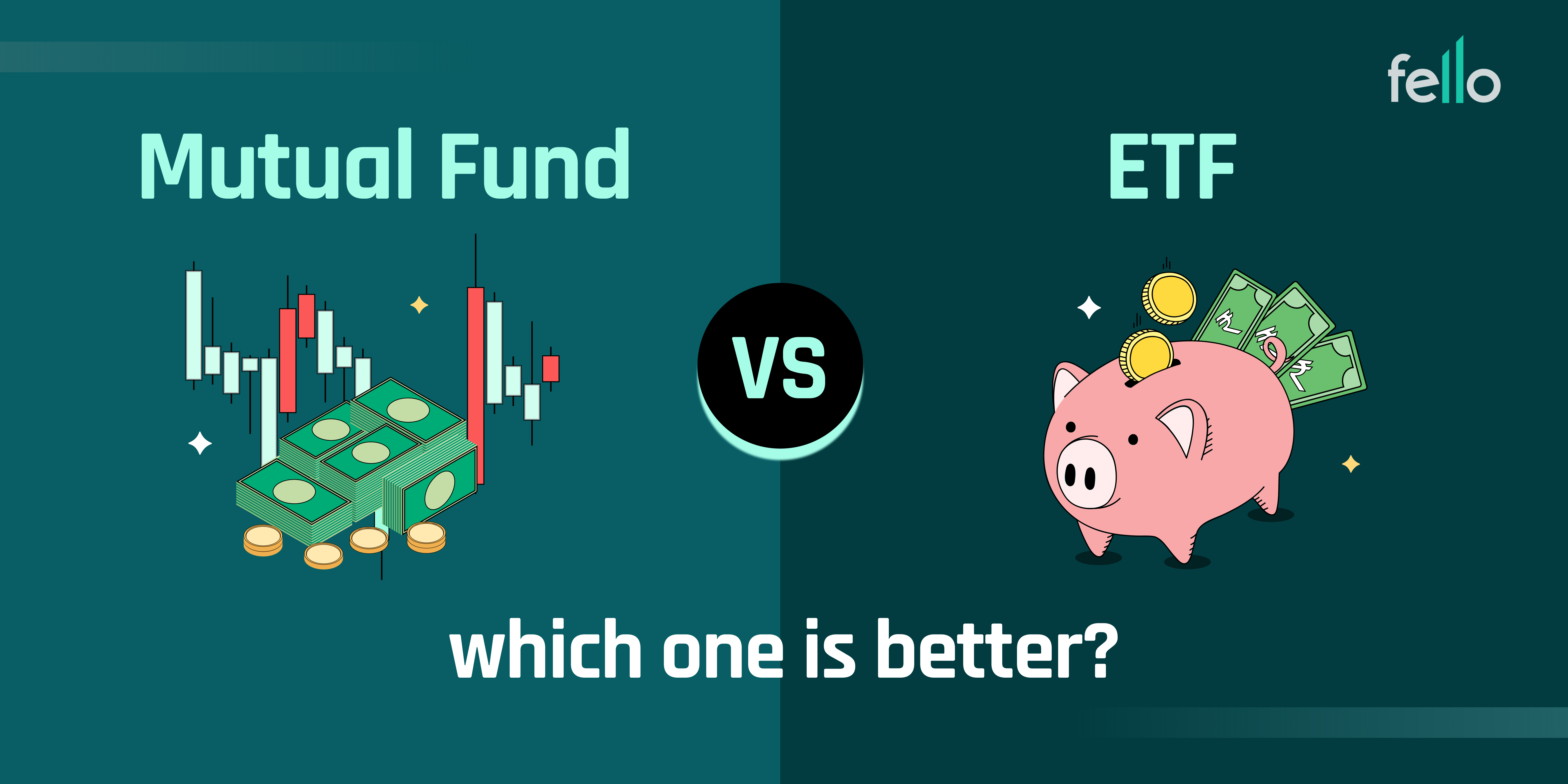Investors today have a wide range of options to grow their wealth. Among the most popular choices are mutual funds and exchange-traded funds (ETFs). While both provide diversification and professional management, they differ in structure, cost, and investment approach. But when it comes to deciding which is better, the answer depends on your financial goals and investment style.
In this blog, we’ll break down the differences between mutual funds and ETFs, their pros and cons, and help you decide which one suits your portfolio.
What Are Mutual Funds?
Mutual funds are investment vehicles that pool money from multiple investors to purchase a diversified portfolio of assets such as stocks, bonds, or other securities. These funds are actively managed by professional fund managers who aim to achieve specific investment objectives.
What are the key features of Mutual Funds?
- Active Management: Mutual Funds are actively managed by experts aiming to outperform the market
- NAV-Based Trading: Transactions are executed at the Net Asset Value (NAV) calculated at the end of each trading day
- Flexible Options: Available in various types, such as equity, debt, hybrid, and tax-saving funds
Related Read: What Are Mutual Funds and How to Invest in Them?
What Are ETFs?
Exchange-Traded Funds (ETFs) are investment funds traded on stock exchanges, similar to individual stocks. ETFs typically track the performance of a specific index, sector, or commodity and are passively managed.
What are the key features of ETFs?
- Passive Management: Designed to replicate the performance of an index
- Real-Time Trading: Buy or sell ETFs at market prices throughout the trading day
- Lower Expense Ratios: Cost-effective due to minimal management fees
Mutual Fund vs ETF: Key Differences
| Criteria | Mutual Funds | ETFs |
| Management | Actively managed by fund managers | Passively managed, tracking an index |
| Trading | NAV-based, executed after market hours | Real-time trading on stock exchanges |
| Cost | Higher expense ratios | Lower expense ratios |
| Minimum Investment | Usually higher (e.g., ₵500 for SIPs) | Can buy as low as 1 ETF unit |
| Liquidity | Moderate, requires redemption via fund house | High, can be traded any time during market hours |
What are the pros and cons of Mutual Funds?
What are the pros of Mutual Funds?
- Professionally managed for optimized returns
- Ideal for long-term investors seeking diversification
- Offers tax-saving options like ELSS
What are the cons of Mutual Funds
- Higher fees due to active management
- NAV updates only once a day, limiting real-time trading
Related Read: Equity vs. Hybrid Mutual Funds: What’s Right for Your Portfolio?
Pros and Cons of ETFs
What are the pros of ETFs?
- Lower expense ratios make them cost-effective
- High liquidity due to stock market trading
- Transparency in holdings, as they mirror indices
What are the cons of ETFs?
- Requires a Demat account for trading
- May not outperform the market due to passive management
Related Read: Are Debt Mutual Funds a Safer Bet in a Volatile Market?
What to choose?
Choose Mutual Funds If:
- You prefer active management and professional expertise.
- You’re looking for long-term growth and diversification.
- You want tax-saving benefits through ELSS.
Choose ETFs If:
- You prefer lower costs and passive investing.
- You want real-time trading flexibility.
- You have a Demat account and are comfortable with stock market transactions.
Mutual Fund vs ETFs: Which one should you choose?
When comparing mutual funds vs ETFs, neither is inherently better than the other. Your choice should depend on your financial goals, risk tolerance, and investment style. Mutual funds are ideal for those who seek professional management and long-term growth, while ETFs suit cost-conscious investors who prefer real-time trading.
Start by evaluating your financial needs and consider consulting an expert to create a well-diversified portfolio. For more insights, explore our blog: How to Select Mutual Funds for Investment in India.

